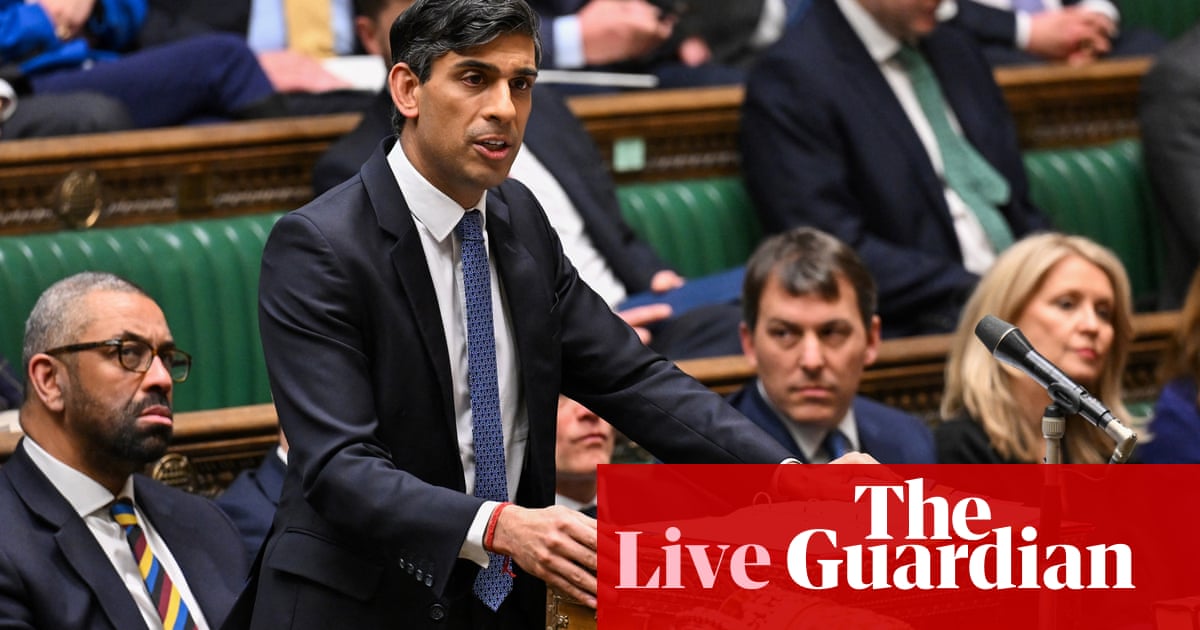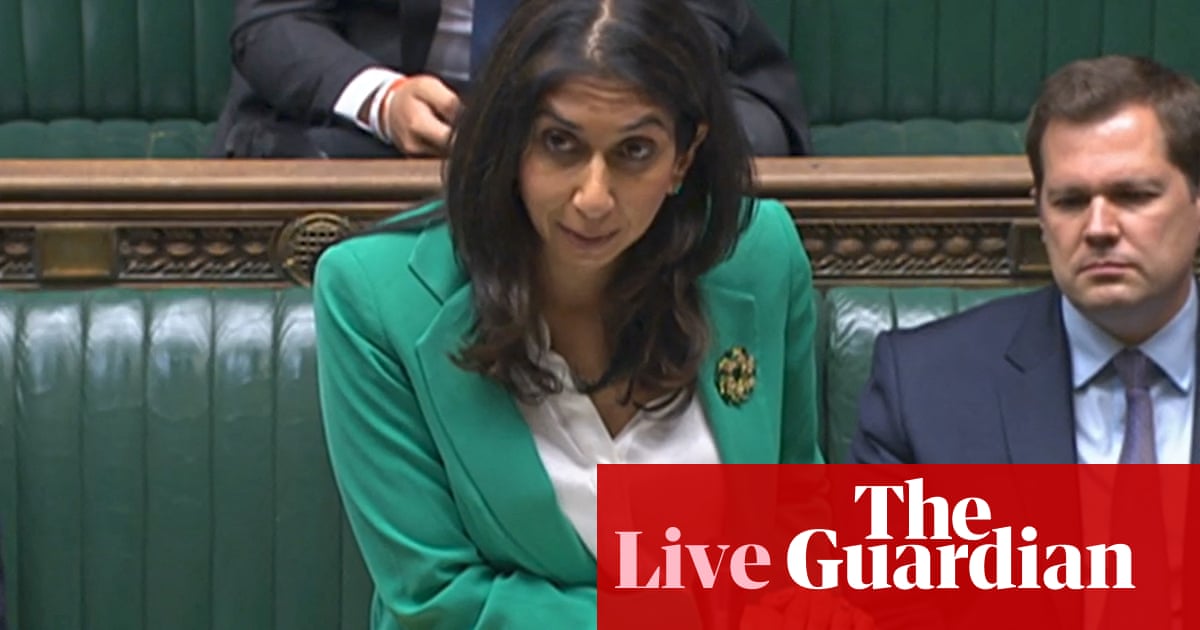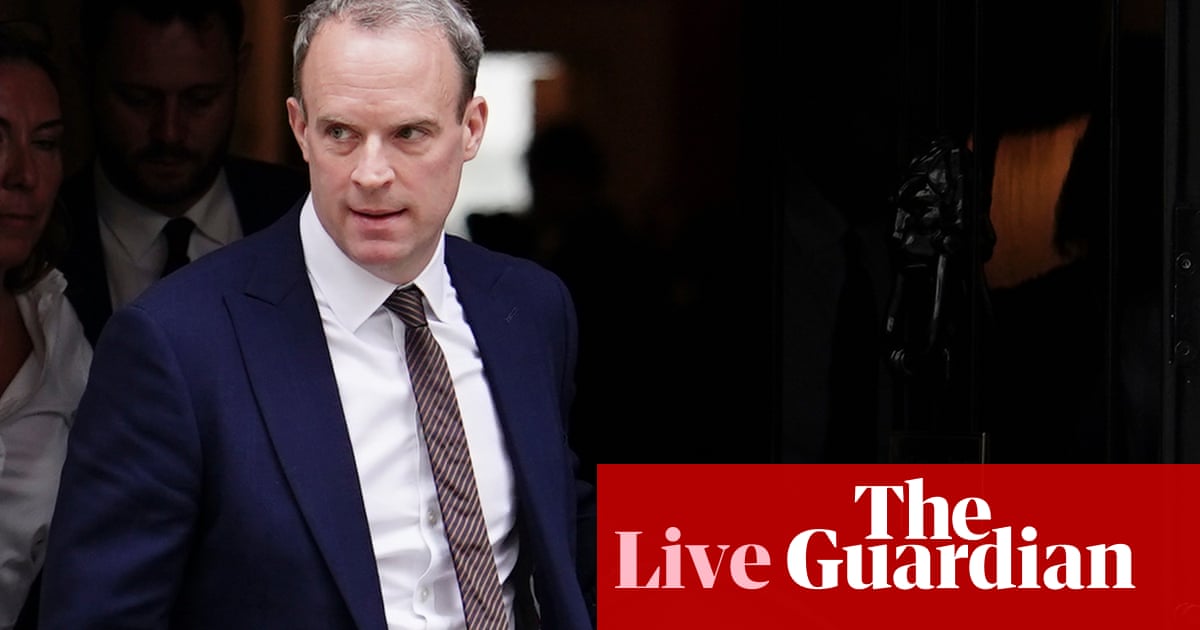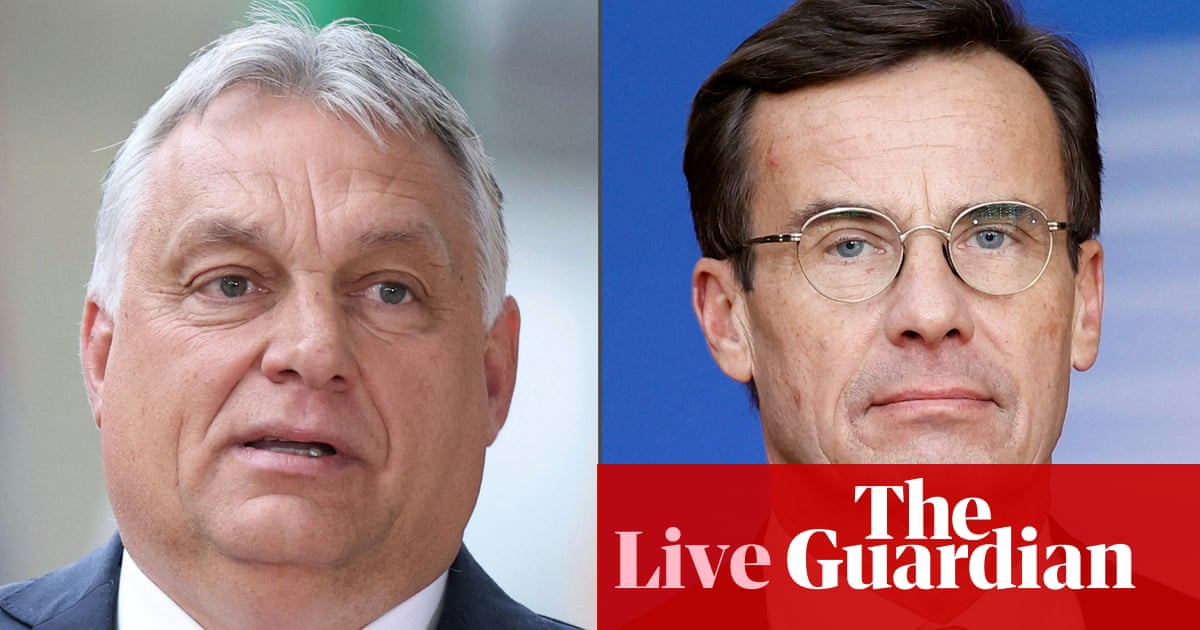
That’s it from me. For further coverage of the pandemic, head over to our global liveblog:
In these extraordinary times, the Guardian’s editorial independence has never been more important. Because no one sets our agenda, or edits our editor, we can keep delivering quality, trustworthy, fact-checked journalism each and every day. Free from commercial or political bias, we can report fearlessly on world events and challenge those in power.
Your support protects the Guardian’s independence. We believe every one of us deserves equal access to accurate news and calm explanation. No matter how unpredictable the future feels, we will remain with you, delivering high quality news so we can all make critical decisions about our lives, health and security – based on fact, not fiction.
Support the Guardian from as little as $1 – and it only takes a minute. Thank you.
Closing summary
Kevin Rawlinson
We’re going to close down this live blog now. Thanks for reading and commenting. Here’s a summary of the day’s events:
The prime minister again stood by his chief aide, despite his admission that he breached the lockdown. Boris Johnson sought to move the public discourse on after days of damaging revelations about Dominic Cummings’ conduct. But his own judgment was questioned by some.
Cummings insisted he did not regret his actions. While he said he understood people’s anger, he refused to apologise and said he did not regret what he had done.
After weeks of seeking to avoid scrutiny, Cummings acknowledged he had made repeated journeys away from his residence. In a highly unusual move, the unelected adviser used No 10 as the backdrop for a personal press conference called, it was said, to give him a chance to explain his reasoning. For weeks, Downing Street had declined opportunities to substantively address questions about Cummings’ adherence to lockdown instructions.
Cummings claimed to have driven 60 miles to test his eyesight. Seeking to explain his decision to drive his wife and young son to a local beauty spot from his parents’ residence, where he had taken the family during the lockdown, Cummings said he was unsure his eyesight was up to the drive to London and wanted to test it out. The prime minister later insisted he believed the excuse was plausible.
The Durham police watchdog formally asked the force to investigate Cummings. Steve White, the acting police, crime and victims’ commissioner, asked for an investigation to establish the facts around the prime minister’s principal adviser’s time in the Durham area during the lockdown.
Durham police confirmed more complaints had been made. The force said it received “further information and complaints from members of the public and we are reviewing and examining that information”.
Some shops are to be allowed to reopen from 1 June, the prime minister announced. Johnson said he was allowing outdoor markets and car showrooms to open because their open nature means they represent a lower risk than indoor places.
A Somerset hospital stopped accepting new patients due to high number with Covid-19. Weston General Hospital in Weston-super-Mare took the step, which included admissions to its A&E department, from 8am on Monday “to maintain patient and staff safety”.
If you’d like to read yet more, my colleague Rowena Mason has the full story:
Here’s a roundup of some of Tuesday’s front pages:
Some of the Church of England’s most senior bishops have reported receiving hate mail and death threats after speaking out on Cummings’ lockdown breach.
The Bishop of Worcester John Inge tweeted:
Helen-Ann Hartley, the bishop of Ripon, said:
She had earlier written about missing her father’s birthday during the lockdown as he recovered from radiotherapy.
Responding to Inge’s tweet, the bishop of Newcastle Christine Hardman wrote:
The previous night she had posted that she was “deeply troubled” by the prime minister’s defence of his adviser.
Paul Bayes, the bishop of Liverpool, was another to receive abuse.
Opposition leaders are to meet on Tuesday morning to discuss public health messaging amid the political row over Cummings’ lockdown breach, the Press Association reports.
Prof Jackie Cassell, the deputy dean of the Brighton and Sussex Medical School, has dismissed Cummings’ reasoning:
London has lots of ITU (intensive treatment unit) and hospital beds as a major population centre. Its residents should not be decamping to places where they might need – and in this case did need – to use another region’s hospitals and health care facilities.
This is an important reason why Cummings should have stayed put. And he, like all senior government advisers, will have been well aware of this.
We will need to protect the NHS for a long time. I would not be surprised to see targeted travel restrictions within the UK over the summer to protect NHS facilities outside the major cities.
Cummings has claimed his 60-mile roundtrip to Barnard Castle was necessary because he needed to test his eyesight before driving home to London.
Asked why alternative transport arrangements, such as a government car or Cummings’ wife taking on the driving duties, could not be arranged, Johnson said:
To the best of my knowledge, Mr Cummings has just subjected himself to your interrogation for quite a long time now about these very detailed matters and has produced quite a substantial chunk of autobiography about what happened in the period from 27 March to 14 April.
I really feel that it would be wrong of me to try to comment further. I think people will have to make their minds up. I think he spoke at great length. To me, he came across as somebody who cared very much about his family and who was doing the best for his family.
I think, as he said himself, reasonable people may disagree about some of the decisions that he took, but I don’t think reasonable people can disagree about what was going through his head at the time and the motivations for those decisions.
One quote from the prime minister’s briefing that bears relaying in full. Responding to questions about when he learned of Cummings’ lockdown breach, he said:
I didn’t know about any of the arrangements in advance ... What I think did happen was while I was ill and about to get a lot sicker we had a brief conversation in which I think Dominic Cummings mentioned where he was.
But I have to tell you, at that particular stage I had a lot on my plate and really didn’t focus on the matter until these stories started to emerge in the last few days.
After Matt Hancock backed Cummings’ explanation of his lockdown breach, shadow health secretary Jonathan Ashworth responded:
Cummings has received the backing of Sir Robbie Gibb, who was Theresa May’s director of communications in Downing Street.
Cummings’ statement this afternoon did little or nothing to address the issues facing the government, according to Dr Michael Head, a global health expert at the University of Southampton:
The statement from Cummings really only reinforced his clear disregard for public health guidance, with regards these movement of hundreds of miles by Covid-infected individuals. It seems curious that apparently no one offered to help Cummings and his family during their time of illness in London, bearing in mind he is close to many of the most powerful and wealthy politicians in the country, including the prime minister.
There are also issues of taking up emergency healthcare resource in an area of the country where you are not resident – this makes a mockery of healthcare planning where ideal number of intensive care beds are based on population numbers in the local area. It is also very poor public health practice to put your family in a car and go for a 60-mile drive in order to test your eyesight.
There are still Covid-19 deaths in care homes and hospitals. The pandemic can only finish if there is strong leadership from the government and compliance from the general public. Going forward, we have real potential issues around trust in the government from the general public. However, it is of huge importance important that the public do try and stay on board with the expert-led advice, to support themselves, their families and the general population.
The acting leader of the Liberal Democrats, Ed Davey, called for Cummings to be fired after the No 10 adviser’s press conference this afternoon.
Following the later briefing by Boris Johnson, in which he again backed Cummings, Davey has said questions are now to be asked of the prime minister himself.
The prime minister’s own judgement is now in question. If he was really convinced by Dominic Cummings’ story, he is in a small minority and the public’s confidence in Boris Johnson’s handling of the coronavirus crisis will only fall further.
The prime minister ought to understand that the public want to see strong and clear leadership during this health crisis, but the Cummings scandal has heaped yet more confusion on the government’s public health messaging.
As if to distract our attention, the prime minister has attempted to outline key steps beyond lockdown. Yet this requires a comprehensive test, trace and isolate strategy to be in place. That is the only way to keep people safe.
To get us through this crisis, and start to rebuild public trust, the prime minister must show leadership, terminate Cummings’ contract, and commit to an independent inquiry into the government’s handling of this crisis.
Addressing the plan to reopen some retail outlets and not others, the government has added:
Hairdressers, nail bars and beauty salons, and the hospitality sector, remain closed because the risk of transmission in these environments is higher where long periods of person to person contact is required.
Referring to plans to allow some retail outlets to reopen, the business secretary Alok Sharma has said:
The high street sits at the heart of every community in the country. Enabling these businesses to open will be a critical step on the road to rebuilding our economy and will support millions of jobs across the UK.
The guidance we have set out today provides a vital framework to get shops open in a way that is safe for everyone. It explains how retail workers who are not currently working can go back to work as safely as possible and feel confident in their workplace. And it reassures customers that shops are properly assessing the risks and putting in place measures to protect them.
Here are the slides presented at today’s briefing:
As the government seeks to assuage the anger many have expressed over Cummings’ lockdown breach, it is perhaps interesting that the prime minister referred more than once to the sacrifices the country has made to try to stop the spread of the virus. Here’s what he said in his opening remarks:
These are careful but deliberate steps on the road to rebuilding our country. And we can only take these steps thanks to what we have so far achieved together. We will only be successful if we all remember the basics – so wash your hands, keep social distance, and isolate if you have symptoms – and get a test.
He returned to the theme of sacrifice later and, as experts stress the damage the Cummings affair is doing to the government’s messaging at a time of crisis, he repeated the guidance at various points during the briefing.












